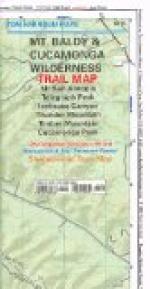THE MOOSE WAS NOW SNORTING LIKE A WAR-HORSE BENEATH.
“There is Moosehead lake.”
Dol sights A friendly camp.
In the shadow of Katahdin.
“Go it, old Bruin! Go it while you can!”
“Herb Heal.”
A fallen king.
The camp on Millinokett lake.
“Herb charged through the choking dust-clouds.”
Greenville,—“Farewell to the woods.”
CAMP AND TRAIL.
CHAPTER I.
Jacking for deer.
“Now, Neal Farrar, you’ve got to be as still as the night itself, remember. If you bounce, or turn, or draw a long breath, you won’t have a rag of reputation as a deer-hunter to take back to England. Sneeze once, and we’re done for. That means more diet of flapjacks and pork, instead of venison steaks. And I guess your city appetite won’t rally to pork much longer, even in the wilds.”
Neal Farrar sighed as if there was something in that.
“But, you know, it’s just when an unlucky fellow would give his life not to sneeze that he’s sure to bring out a thumping big one,” he said plaintively.
“Well, keep it back like a hero if your head bursts in the attempt,” was the reply with a muffled laugh. “When you know that the canoe is gliding along somehow, but you can’t hear a sound or feel a motion, and you begin to wonder whether you’re in the air or on water, flying or floating, imagine that you’re the ghost of some old Indian hunter who used to jack for deer on Squaw Pond, and be stonily silent.”
“Oh! I say, stop chaffing,” whispered Neal impetuously. “You’re enough to make a fellow feel creepy before ever he starts. I could bear the worst racket on earth better than a dead quiet.”
This dialogue was exchanged in low but excited voices between a young man of about one and twenty, and a lad who was apparently five years his junior, while they waded knee-deep in water among the long, rank grasses and circular pads of water-lilies which border the banks of Squaw Pond, a small lake in the forest region of northern Maine.
The hour was somewhere about eleven o’clock. The night was intensely still, without a zephyr stirring among the trees, and of that wavering darkness caused by a half-clouded moon. On the black and green water close to the bank rocked a light birch-bark canoe, a ticklish craft, which a puff might overturn. The young man who had urged the necessity for silence was groping round it, fumbling with the sharp bow, in which he fixed a short pole or “jack-staff,” with some object—at present no one could discern what—on top.




